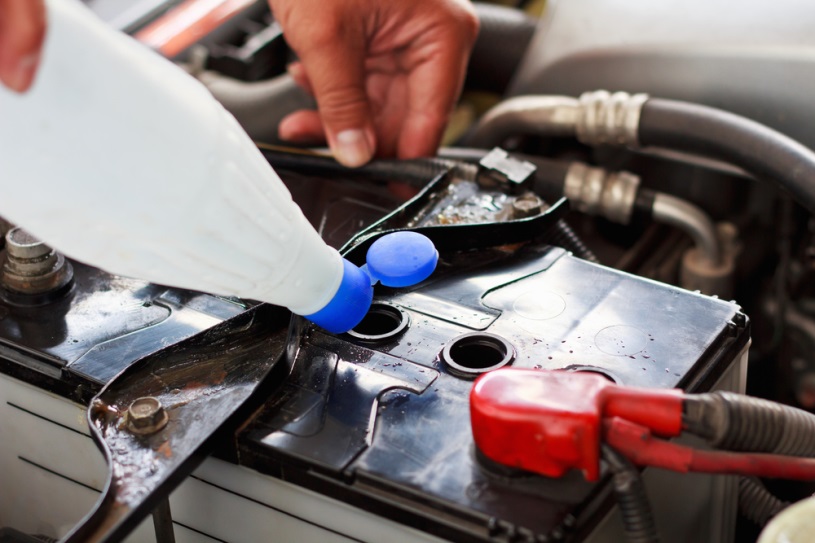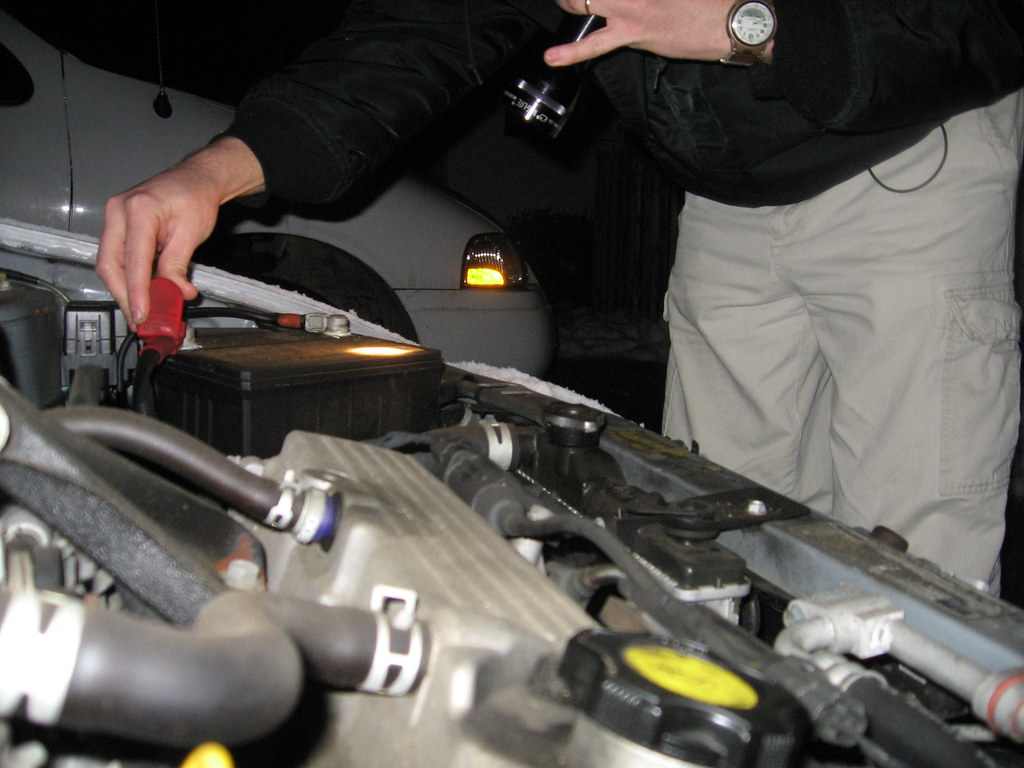

On average, car batteries last for three years with normal care and maintenance. The average cost of replacing a car battery is £130, with prices ranging from £100 to £300 and it is usually the case that battery prices for vehicles with a stop/start system are higher (around 20% more). Having a car battery replaced professionally in the UK typically costs in the range of £162 to £460, including both the battery and labour installation costs.
When you’re shopping for a new car, which features do you pay the most attention to? Most of us judge a car based on its engine capacity, its fuel efficiency, its size or the level of comfort it offers.
Few of us, on the other hand, pay much attention to our car’s battery. As one of the most important parts of any modern vehicle, your car’s battery manages a massive range of tasks and devices, from starting the engine to powering in-car computers.
In addition to changing your oil, replacing air filters and other general service tasks, taking care of your car’s battery is one of the most effective ways to ensure your car runs smoothly and without any problems.
Flat or damaged batteries are one of the top causes for roadside assistance calls, and a huge amount of breakdowns occur because of batteries that are simply too old for the job they’re performing.
In this guide, we’ll break down the facts regarding your car’s battery and help you determine when it’s time to choose a replacement. We’ll also share car-specific tips to help you get the most from your vehicle’s battery and extend its lifespan.
Batteries can become worn down in as little as three years
Although batteries can last for five years or more when properly cared for, most car batteries will become worn down and inefficient within three years of everyday use in normal conditions.
Just like your computer or smartphone’s battery becomes less efficient with every charge, your car’s battery gradually deteriorates every time it’s charged up by the vehicle’s engine. After three years, it’s normally time to install a replacement.
After four or five years, most car batteries will be almost completely unreliable. Old car batteries can present a number of safety and reliability issues. Luckily, it’s easy to identify if your car’s battery is nearing the end of its lifespan.
Does your car’s electrical system respond like it should?
Even a car with a highly defective battery will function properly once it’s running, since much of the charge for the battery will come from the engine. This makes the best time to test your car’s battery shortly after you switch your vehicle on.
Your car can still start quickly, even with a failing battery. However, features that have significant power demands that are powered by the battery, like headlights, may not function as well as they should.
Try starting your car at night with the headlights switched on. Are they dim? If the headlights look overly dim, put the vehicle in park or neutral and rev the engine. If the battery is failing, the headlights will get brighter as you apply the accelerator.
This is a great way to check if your battery is starting to fail. A completely broken battery is even easier to spot: when you turn the key in the ignition or push your car’s ignition switch, it won’t start at all.
The newer your car, the bigger the strain on its battery
As a general rule, the more sophisticated your car’s on-board computers are, the bigger the strain on its battery. Many new cars have powerful computers that are operating all the time, even when the vehicle itself is parked and switched off.
These computers can draw energy from your car’s battery at a slow, steady rate, wearing it down over time. Although the charge each computer draws is tiny, the aggregate effect can drain your car’s battery when it sits unused for a long time.
If you use your car infrequently, avoid letting its battery become drained by on-board computer systems by taking it for a short drive – around the block once or twice will do – to recharge its battery every week or two.
Check your battery frequently to avoid breaking down

The next time you take your car into the garage for a routine service, make sure to ask for its battery to be checked. Battery wear isn’t always steady – your vehicle’s battery could go from 90% performance to 20% over the course of a few months.
Testing a battery is easy, and every reputable garage or repair shop will have its own set of electronic testers on hand to test yours. Regular tests can reveal when your battery needs to be replaced and help you avoid embarrassing breakdowns.
If your battery is showing signs of wear and hasn’t been replaced in two or three years, don’t take any risks. Car batteries are inexpensive, and the small cost of a replacement is worth it to avoid the stress of a roadside breakdown.
Cars with stop-start technology may need special batteries
Does your car use stop-start technology to save petrol? Cars with engines that are designed to automatically switch off when at a standstill place a greater strain on their batteries than standard vehicles, and often need to use a special battery.
If your car has stop-start technology and you’re replacing its battery yourself, make sure you purchase a suitable replacement. Your nearest automotive shop will stock a battery designed to accommodate your vehicle’s extra needs.
How do you keep your car battery healthy?
Use the following tips to get the most out of your car battery and extend its functional lifespan beyond the standard three-year mark:
- Service your car frequently to prevent an inefficient engine and other vehicle components from straining the battery. Make sure that your battery is given a routine check as part of your regular service.
- Never leave your lights or air conditioning on while your vehicle is switched off, as they’ll drain the battery
Bought a new car! Mom left the lights on while I was at work and drained the battery, cooool…….
— tayler pocsai (@taylerpocsai) December 9, 2014
- Drive your car frequently (at least once every week) to prevent the battery from becoming too drained. Every time you take your car for a drive, its alternator (a little generator connected to the engine) produces electricity that keeps the battery topped up with charge. Longer drives are best because it takes some time to regain the charge lost when starting the car – a big strain on the battery. A 30-60 minute drive once a week should be enough to maintain a healthy battery.
- Limit short trips. Quick car rides to the shops and local places may prevent your car’s battery from fully charging.
- Check your battery after you’ve driven off road or on a bumpy road, as the impacts can loosen its connections
- Make sure your car battery’s terminals and casings are kept clean and free of dirt, dust and grit
- Don’t use electronics with the engine switched off. Leaving tablets and phones plugged in may drain your battery.
Is it time to replace your car’s battery?
When was the last time you replaced your car’s battery? Whether your car works as new or its lights and other electronic devices are starting to show signs of age, there is no bad time to check your battery’s condition.
Does it matter what brand car battery you get?
Not necessarily however, name-brand batteries typically include longer warranties and you can expect them to be more reliable than a generic battery. Good car battery brands to choose from include Varta, Yuasa, Bosch and Powerline and your local garage or main dealer should be able to advise you on what battery brand is best for your vehicle.
What Type of car battery do I need?
Most car batteries are nearly identical, providing you’re choosing like for like; they come in a wide array of different types, from lead-acid (a rechargeable battery that uses lead and sulphuric acid to function. The lead is submerged into the sulphuric acid to allow a controlled chemical reaction which causes the battery to produce electricity), AGM (AGM means absorbent glass mat and refers to the fine glass fibre separator between the positive and negative plates that helps absorb all the battery acid ), and Gel batteries (they use silica or sand to turn the acid inside the battery into a thick liquid. This liquid does make it spill-proof but the gel is fragile and can be easily damaged ), and of course, have different power ratings, for example a 3.0 litre diesel V6 engine for a Land Rover or Range Rover will need much more starting power than a Ford Fiesta 1000cc three-cylinder petrol engine.
How to dispose of your car battery
If you’ve replaced your car battery yourself and need to transport the battery, remember to always keep it upright and within a safe container to avoid any spillages of acid. Also, car batteries can be very heavy, be careful not to injure yourself while picking them up or moving them.
Car batteries have hazardous substances inside them, and you’re not allowed to dispose of car batteries (by law) with your regular household waste. Most recycling centres, authorised scrap metal facilities and garages are able to dispose of them but some may charge you a fee for doing so. Find out more about recycling and how to get rid of your car battery
An extended car warranty from Warrantywise provides protection for your vehicle beyond the manufacturer’s warranty, shielding you from those unexpected repair costs that can arise due to mechanical or electrical failures. Get a free quote from Warrantywise today.
It’s always a good idea to keep your options open when it comes to selecting a warranty; remember to look at the cover levels and prices. Also always check the small print!

